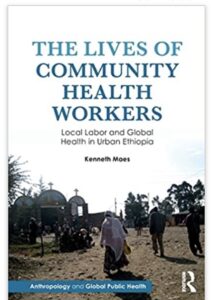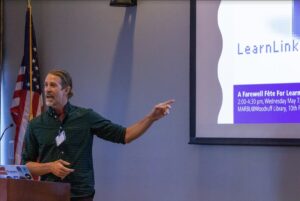About Kenneth Maes
Kenneth Maes is currently a faculty member of the Anthropology program at Oregon State University. Dr. Maes conducts research on the determinants and outcomes of the massive lack of effective health workers in the context of poverty, particularly health workers who understand the lives, dignity, and power of marginalized communities. Particularly, Mae and colleagues serve to advocate for community health partners who have the capability of improving health and reducing suffering in vulnerable populations, but face struggles such as insecure employment and poor pay.
University. Dr. Maes conducts research on the determinants and outcomes of the massive lack of effective health workers in the context of poverty, particularly health workers who understand the lives, dignity, and power of marginalized communities. Particularly, Mae and colleagues serve to advocate for community health partners who have the capability of improving health and reducing suffering in vulnerable populations, but face struggles such as insecure employment and poor pay.
Mae’s Ethnography and Research
Mae has published a book titled, “The Lives of Community Health Workers: Local Labor and Global Health in Urban Ethiopia” as well as many articles from his field work in Ethiopia. Questions he is specifically interested in researching include how community health workers (CHW) suffer from forms of psychosocial stress and how the work of CHWs impacts population health. He also researches how big institutions such as NGOs structure the quantity and quality of available community health worker jobs and issues of compensation.
 Maes work began in 2006 when his first article titled, “Food Insecurity, Well-being and Motivations Among Volunteer HIV/AIDS Caregivers in Addis Ababa, Ethiopia”. This research discusses how low-income volunteers have become a major part of the HIV/AIDS prevention and treatment workforces. With this, they looked to specifically address the impact of positive HIV serostatus within the group. They also wanted to further develop the understanding of cycles of poverty, undernutrition, and AIDS in sub-Saharan Africa.
Maes work began in 2006 when his first article titled, “Food Insecurity, Well-being and Motivations Among Volunteer HIV/AIDS Caregivers in Addis Ababa, Ethiopia”. This research discusses how low-income volunteers have become a major part of the HIV/AIDS prevention and treatment workforces. With this, they looked to specifically address the impact of positive HIV serostatus within the group. They also wanted to further develop the understanding of cycles of poverty, undernutrition, and AIDS in sub-Saharan Africa.
In this ethnography, readers can vividly imagine the CHWs providing empathetic and intimate care to those with AIDS. One can see the deep care of the CHWs who go to people’s homes, bath individuals, and make sure that individuals are continuing their antiretroviral therapy. In a very different light, Maes also paints the picture to readers of the exploitation of the CHWs who fo the work on the ground. Despite the billions of dollars that flowed in from many sources when AIDS was declared an emergency, little of the money reaches CHWs.
After publishing his ethnography, Maes furthered his research in examining the effects of polio eradication efforts, water insecurity, psychological distress among women, and the discourses and experiences of health workers status, motivation, and well-being in Women’s Development Army in rural Ethiopia. Today, Maes researches developing common metrics for evaluating community health worker programs in the United States.
Kenneth Maes at the Symposium at Emory 2022:
